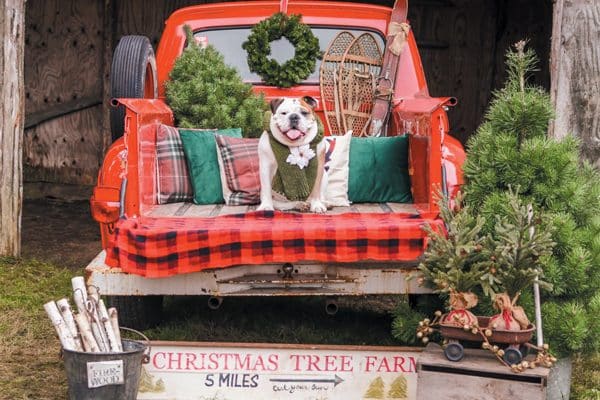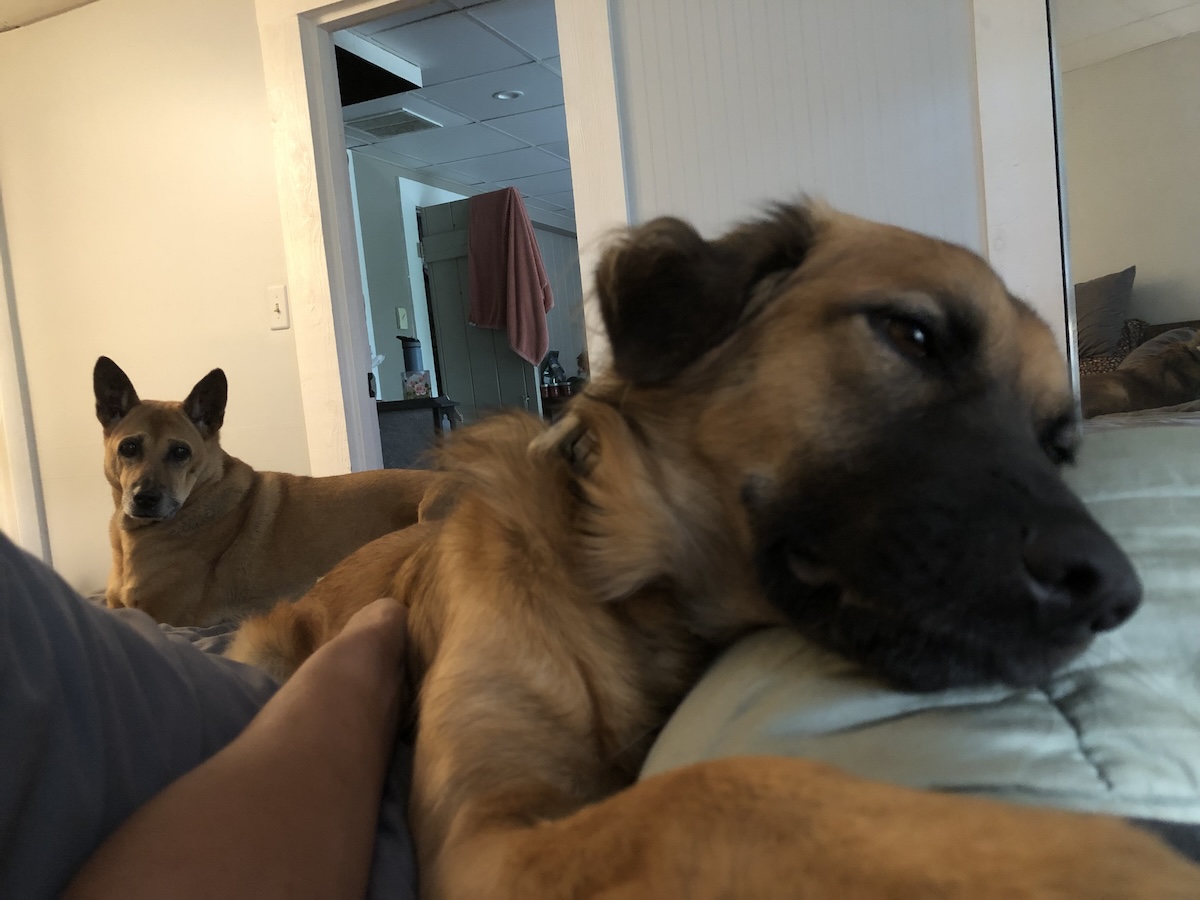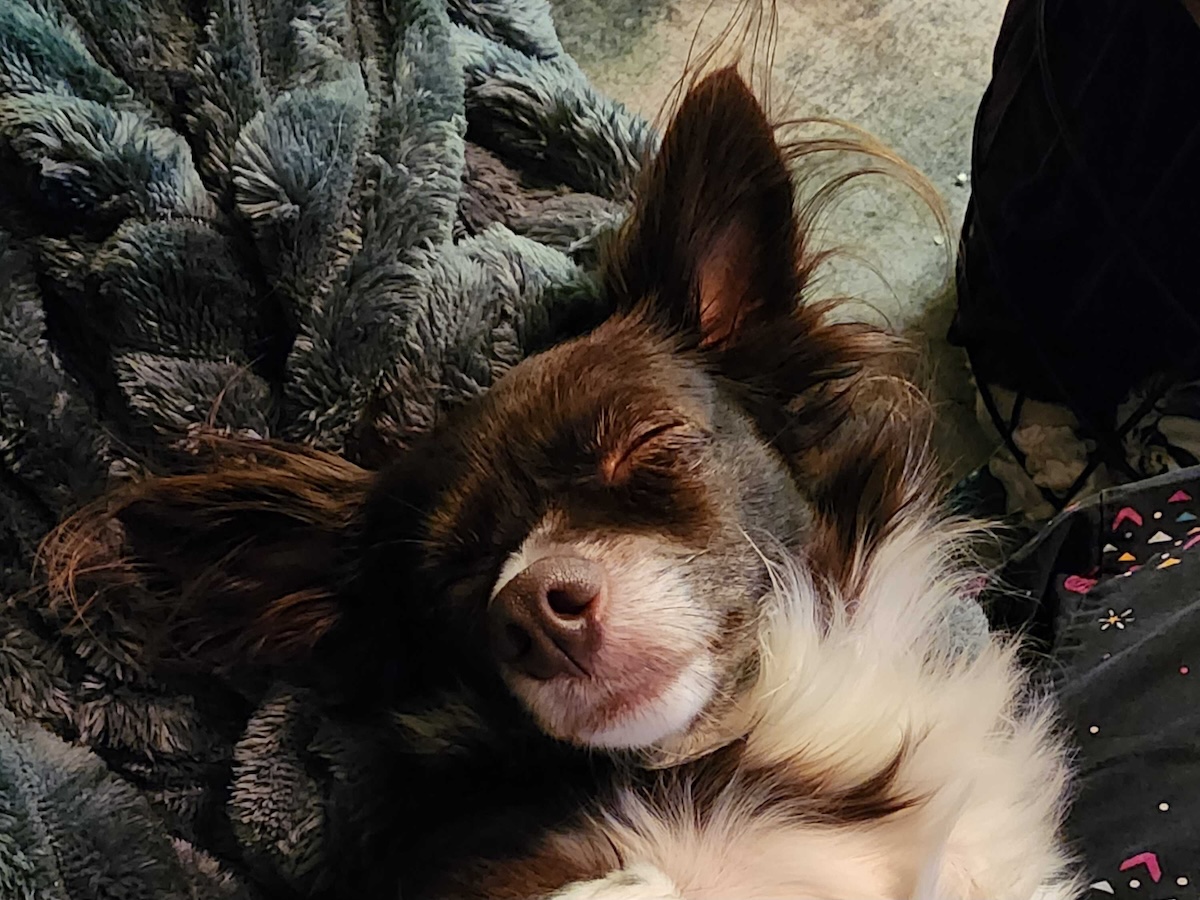Dogs are adorable. And while nothing beats seeing a precious pup in person, we love to capture those moments on camera, both for ourselves and to show off to others. But photos that are blurry or crop off your dog’s head aren’t that cute. When it comes to getting great pics, use the L.E.M.O.N. aid — Location, Enthusiasm, Movement, Opportunity and Nope (We’re Done).
Choose the right location

Just as in real estate, location is a big deal when getting the right photos. And that means the location of the dog, your location in relation to the dog and keeping an eye out for the clutter that is an unwelcome tenant in your image.
Shooting in a nicely lit environment is a great place to start. Instead of shooting your dog out on the beach with strong sun, professional photographer of 15 years David Capron recommends going into the shade or inside the house. “Sit your dog next to a window that has incidental light coming in, and shoot there,” he says.
David, owner of Dogma Pet Portraits in Costa Mesa, California, also recommends getting down to your dog’s height so the camera is at eye level. Of course, depending on how tall your dog is, this might mean spending a significant amount of time on the floor or ground, so dress accordingly.
Take a look around the room before you start shooting. Specifically, watch your backgrounds, advises Milla Chappell, a professional photographer of 10 years and owner of Real Happy Dogs based in New York City. “You don’t want a plant growing out of your dog’s head or garbage in the background of your favorite photo.”
Make it fun

Perhaps the most important part of photographing your dog is to make it fun. If you’re enthusiastic, that can help your dog feel the same way. If you aren’t, your dog will react accordingly.
“Don’t stress your dog out,” Milla says. “My style of photography is very unposed and natural, and I believe it’s important to let dogs be dogs during photo sessions. When I scroll through Instagram, I often see photos of dogs who look stressed and uncomfortable because their owner forced a certain photo, and I want to advise people to avoid this. Let your dog’s joy guide your photography, and the result will be much more authentic.”
The right attitude shows up in the finished product. “The most engaging images are those that show the emotional connection between dogs and their people,” Milla adds. “Photograph your dog with the people he loves most, and don’t forget to get in front of the camera sometimes, too!”
David uses people as well, even if they don’t always appear in the final photos. “If you can, arrange for a human to be in the first couple of shots, so the dog understands that we are all OK with having a black box with the tube on the front pointed at them and it’s not going to hurt in any way.”
In David’s experience in the studio, he takes it slow and provides a prime incentive to boost a dog’s enthusiasm in a new place. “They know that it’s a cool place where unlimited treats from strangers magically appear for no good reason,” he says.
Get moving
Portrait shots are great, no question. But catching your dog in motion can be quite compelling. And it doesn’t have to be an elaborate action shot. There’s a reason why the Beatles’ Abbey Road album cover is ranked No. 2 on Billboard’s Top 50 Album Covers of All Time. While a photo of your dog walking across the street may never achieve icon status, it can still make for a photo potentially more interesting than your dog at rest.
And even if your dog is posed, movement on your part can maximize results. “If you are photographing your dog on the ground with a toy, for example, get on the ground with her to shoot it first, then photograph the same scene from right above and then from far away,” Milla recommends. “Sometimes the most interesting photo is the angle you didn’t expect.”
There are ways you can help make those interesting angles happen. “Compose the photo to give your dog room to look or move into the frame,” Milla says. “When we view photos, we subconsciously look toward the space that the subject is moving or looking, so as a photographer you can use this concept to your advantage.” She adds that steering the viewer’s gaze can help deepen the emotional response to a photo and make it more meaningful.
If you have a particularly rambunctious dog, getting her on the move before the photo shoot might be just the trick you need. “’A tired dog is a happy dog’ as the quote goes, so a long walk or a morning at play group just to get a little of the puppy out of them generally works,” David suggests.
Where you don’t want movement is with the camera itself, of course. If you have trouble with a steady hand, consider a tripod for stability. You can even get one for your cell phone — some are less than $10.
Make it happen

There are several easy ways to make the most of a photo shoot. One of them is having an assistant who can wrangle your dog, leaving you to focus on the opportunities that present themselves, which may be fleeting. To that end, David recommends using quantity to get quality.
“A great expression might only last a millisecond. Good luck trying to predict when that millisecond might happen. The more images you’ve shot, the more chance you have of capturing it.” Treats are a great way to get your dog to look where you want, making it more likely to get that eye contact in the shot.
“Over the years I’ve gotten pretty good at directing their attention, not that it’s a particularly magical technique,” David says. “Most dogs will watch where you hold a treat with the efficiency of a military grade missile tracking system.”
Nope (we’re done)
Finally, if you or your dog is getting frustrated, or you have a time crunch, it’s time to say nope, we’re done for the day. End on a high note with a treat and some pettings so your dog associates your Ansel Adams imitation as something that’s fun and worth looking forward to.
Whether you’re taking photos while out and about or looking for that perfect portrait, have fun with the experience. And don’t get too hung up on what you’re using. “I mostly use my cell phone for taking photos of my dog and family,” Milla says. “The ‘real’ camera only comes out for special occasions.”
Turn photos into something

Now that you have some great photos, what should you do with them? Below are some of the many items beyond holiday cards you can personalize with your pup’s pic to keep for yourself or give to others. But first, some guidelines on matching the photo to the medium for maximum impact.
- Size matters. If you’re putting a photo on something fairly small, like a mug, make sure your dog’s face takes up most of the photo. This isn’t the place to use that panoramic shot of Buster at the beach.
- Busy isn’t best. Notice backgrounds, and crop in on your dog if necessary. Don’t waste valuable space showcasing the TV in the background or your dinner plate on the coffee table.
- Follow their eye. If you’re laying out something like a card or calendar, place the image so your dog isn’t “looking off the page.”
Shutterfly, Vistaprint, Minted and Costco’s Photo Center are among the great places to order items with your pet’s portrait — for practically every room in your house.
- Accessories: Cell phone covers, tote bags
- Apparel : T-shirts, hats and socks (yep, even socks!)
- Décor: Blankets, candles, magnets, pictures in all sizes on glass, metal or canvas, pillows, photo books — in memoriam, from grand-dog to grandma, Fido’s first birthday, etc.
- Household items: Calendars, mugs, tea towels, coasters
Know your camera

While cameras are still the gold standard for photography, many people use mobile devices to take photos. Beyond the L.E.M.O.N. aid guidelines, David Capron of Dogma shares some technical aspects to photographing your dogs that can help make those photos, well, picture perfect.
You don’t need to be an expert, but know your camera or device as well as you can, David says. “Say, for an iPhone, know how to turn off your flash and how to shoot on burst mode.” For example, “You can easily fix that devil dog red eye thing by turning off your flash,” he adds.
“For someone shooting outdoors for fun, you can get great pictures with a starter mirrorless or DSLR camera kit from any of the manufacturers for $500,” David says. “But really, great images do not depend on the equipment, just the eye of the photographer taking them.”
Don’t forget about editing programs that can help after the fact. David uses PhotoShop Elements on his computer and the Snapseed app on his mobile phone. “They all have algorithms that will help brighten, sharpen and bring out extra details,” he says, adding that they can be particularly helpful if you have an all-black dog.
Finally, there’s one last technicality to be mindful of — a legal one. If you have a professional photo shoot done, the photographer owns the legal copyright to those images unless you get specific permission in your contract.
For example, “A customer is not entitled to buy a 5 x 7 image from us, copy it and blow it up to a 30 x 40 canvas (it would also look terrible, but it’s a no-no),” David says. If Dogma does release digital images for personal, not commercial, use, the understanding is that the buyer can do anything they like with those images. Dogma will also provide a release should any lab require it before they’ll print anything if requested. Find out what any professional photographer’s policy is on this before you book your photo shoot.
Editor’s note: This article first appeared in Dogster magazine. Have you seen the new Dogster print magazine in stores? Or in the waiting room of your vet’s office? Subscribe now to get Dogster magazine delivered straight to you!








